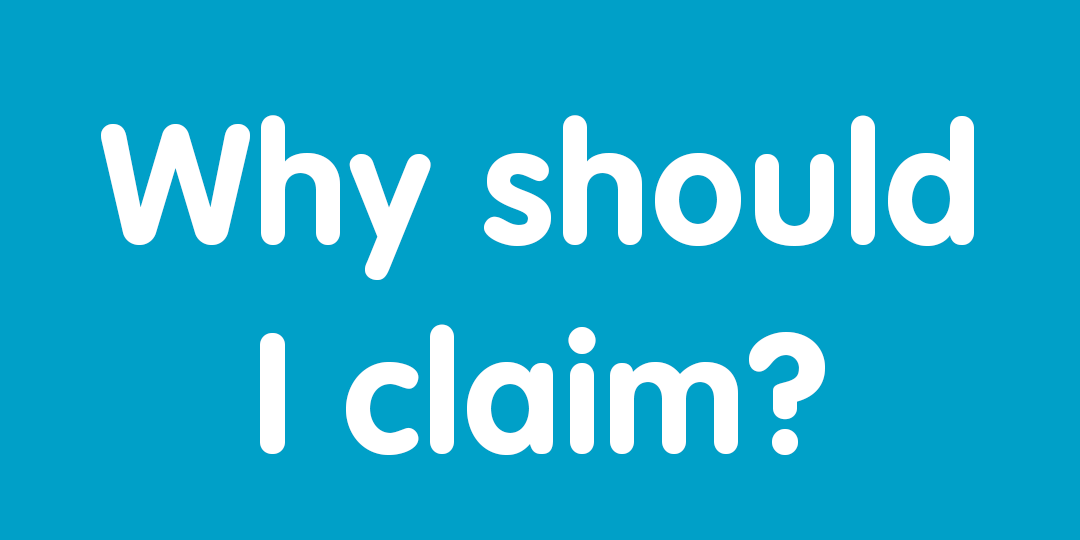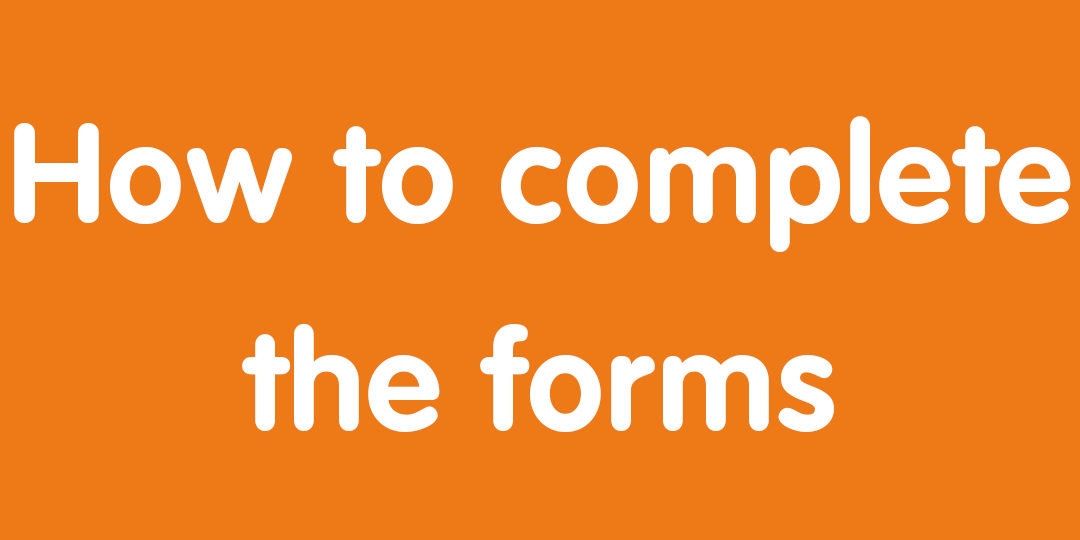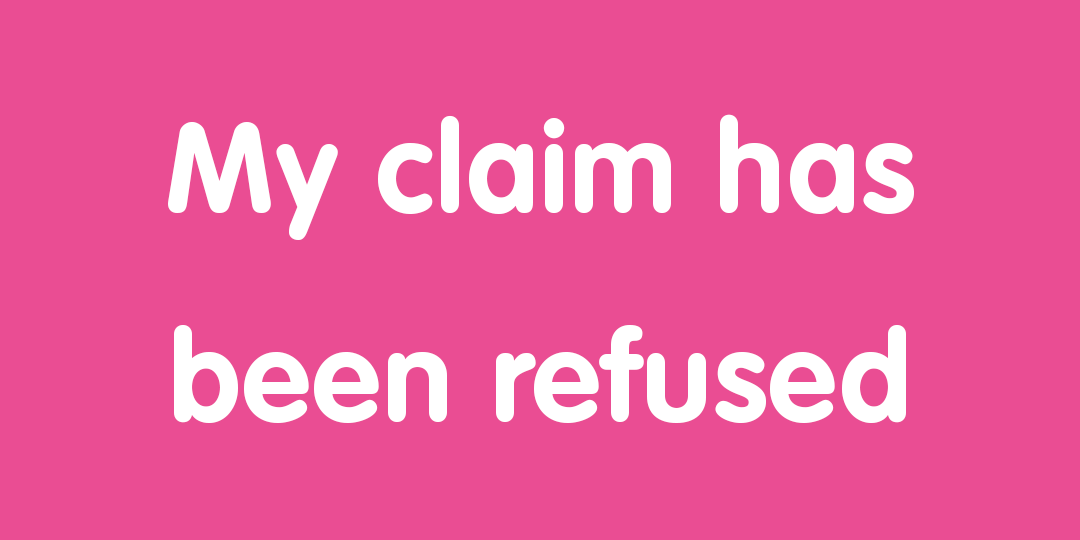DLA
Disability Living Allowance is a grant that may be paid every four weeks, on application, by the Department for Work and Pensions (DWP), to help families achieve the extra care that children with complex conditions require to ensure that they fulfil their potential.
The allowance does not depend on how much the family earns (i.e. it is not means tested), it is paid where the needs of a child are over and above the normal needs of a child of the same age.
Your child’s heart condition does not make them automatically eligible for support, instead the DWP look at how their condition affects how they live their life. This means that you are not automatically entitled to this benefit; you have to prove how your child’s care or mobility needs are different to those of another child of their age, and how their diagnosis affects them on a day-to-day basis.
Little Hearts Matter has been asked to help with these claims by parents and members of the cardiac teams that look after the children, as the questions can be complex and daunting.
We hope to offer help to all those who have to complete these complex forms. Included in the information are some sample answers and points to consider when thinking about a child with a single ventricle heart condition. Anyone applying needs to be prepared to take time when completing the form and be in the appropriate frame of mind. It can be stressful and upsetting filling in the details of your child’s restrictions so be kind to yourself and take it slowly. Remember that you can always contact the Little Hearts Matter office on 0121 455 8982 if you would like help at any stage of the process.
It is important to remember when completing DLA forms that each child with single ventricle heart disease is different. The following suggestions of information to include in your application are only general rules and ideas. Some children will have a better quality of life, some a more difficult one.
Contents:
Components of DLA
DLA consists of two components: Personal Care and Mobility. The components each have separate rules about eligibility, and also have separate rates. They can be awarded separately.
Personal care
There are three levels of personal care allowance, the highest being paid to families who have to provide care during the day and night.
The child has to have these difficulties for at least three months to trigger the benefit so although you can apply as soon after birth as you wish, the earliest that any payment would be made is when the child is three months old.
Below are some notes and definitions to help you understand the different rates.
Higher rate
Day and night care – during the day, child needs frequent attention in connection with bodily functions or constant supervision to avoid substantial danger to self or others. During the night, repeated or prolonged attention in connection with bodily functions and / or supervision to avoid harm. 20 minutes plus (prolonged) or at least three times (repeated).
Middle rate
Day or night care – one of these – child needs frequent attention with bodily functions throughout day or needs constant supervision during day to avoid danger to self / others or needs attention at night (repeated, prolonged or frequent supervision).
Lower rate
If child requires help with bodily functions for a significant part of the day – at least one hour per day – either a single period or on a number of occasions. Help must be required for at least four / five days or nights every week.
Bodily functions – most questions relate to this, for example, eating and communicating.
Care needs – must be substantially in excess of the normal requirements for a child of the same age.
Extra attention – this could be either physical or verbal encouragement.
Day / night definitions – when the adults in the house are normally awake / asleep.
Supervision – watching the child to prevent harm to self or others.
Mobility
There are two different levels of financial support available for the mobility component, depending on your child’s mobility needs.
Applications can only be made for children over the age of three.
For children aged three to five only the higher rate is available if the child meets the criteria set out below.
From the age of five, two rates are available.
Lower rate (age five upwards)
The lower rate is for children who need guidance or supervision when walking outdoors or in unfamiliar places.
Higher rate (age five upwards)
This is awarded if a child is ‘unable or virtually unable to walk’ (the DWP will look at speed, length of time taken, manner of walking, any discomfort or pain, as well as distance). When looking at older teenagers it is important to look at their age and growing independence. Does their lack of mobility hold their independence back?
Before you start to complete the forms it can help to write a diary of the care that you give your child for one week. This serves a number of purposes.
- It will clearly show whether you provide extra care or not.
- It will help you to understand how much you do for your child both through the day and night.
- It can help you to think about bad days and ‘better’ days, and think through whether the ‘better’ days are actually OK or just not as bad as the really bad ones!
- It will help you to understand how long each task takes.
- It can be included in your DLA application.
Why should I claim?
Although a parent offers all care to their children whatever they need, very often children with complex heart conditions require a great deal more attention than other children of their age.
They need very careful supervision for many reasons. For example, their cardiac condition can change causing increasing heart failure or their anticoagulation medication may put them at risk if they fall. These problems need swift and skilled attention. Until these children reach adulthood they will be unable to respond themselves to a change in their condition.
Their nutritional needs are greater than other children’s, they require a higher number of calories to keep their body running, and more to grow but they don’t have the energy to take in the food they need easily. Lots of time and imagination is needed to help these children grow.
They need medication day and night.
They need to be kept warm: during the cold weather the heart has to work harder to circulate blood to the hands and feet and the children can get very cold.
Some parents think that they should not claim because they don’t need the money, but it is important to remember that in the future your child may. It can be saved for them for use in adulthood; remember it may be difficult for them to get a mortgage because they are probably not eligible for life insurance. The whole family may deserve a holiday because of all the stress and worry involved in caring for a child with these complex problems. It can help to cover the expenses of time spent in the hospital. Every claim helps to raise the profile of the needs of children with complex heart problems, as sadly many people do not understand that these children do have special needs.
It can open the door to other benefits such as Carer’s Allowance, and can make applying for a Blue Badge easier. Please refer to the section on other benefits for further information.
If a claim is not made in childhood it is very unlikely that your child will be able to make a claim when they need help to be more independent in adulthood.
When should I claim?
Claims can be submitted anytime after the birth of a child with special care needs. Changes to the allowance rules now mean that the allowance will still be paid when a child is in the hospital. It has been agreed that much of their care is still being provided by their family so the allowance remains an essential tool in their recovery.
The allowance, if granted, will be paid for different lengths of time, such as one, two or three years – rarely is it granted for life. Six months before the allowance expires the DWP will re-issue claim forms for reapplication.
Where do I get the claim forms?
Disability Living Allowance Helpline 0345 712 3456
You should phone to request a form as soon as you know you might apply, even if you then subsequently complete an electronic version of the claim form, as the date you requested the form is the earliest the claim could be backdated to.
Visit www.gov.uk
If you have speech or hearing difficulties you can contact the Disability Living Allowance by textphone on 0345 722 4433.
How do I complete the claim forms?
You need to write a great deal about your child’s needs, and you may think that the form asks you to repeat yourself. Just keep writing – the more they know the more likely they are to grant you the allowance.
As with all applications please read the forms carefully before you start to complete them.
Remember 1
DLA is granted on the care needs of your child and not on their condition or syndrome, however severe. Using the diary as a guide you should be able to clearly state what type and amount of care you deliver.
Although we all like to talk about the positive development of our children this is not the time to write about just their best days. Think about the difficult things that you do on a daily basis that may be different from other children.
- How long it takes to feed the baby.
- How long it takes to clean through any special feeding equipment.
- How often you have to get up at night.
- How you need to take the pushchair with you for your school-age child.
- How difficult it is to stop tree climbing when the children are on anticoagulation treatment.
Use the child’s name and ‘I’ / ‘We’ statements, do not be vague in any way or talk about ‘the child’.
Remember 2
As you add the details of care on each DLA question, remember that the person in the DWP office does not know your child, will not understand congenital heart disease and cannot imagine the amount of care you give.
It is better to give too much information than too little. You may need to write the same information many times as it relates to more than one question. Don’t worry that you will bore the reader. They need to know about the child’s care and how much of the carer’s life is affected by the child’s disability. You need to provide evidence of their needs and what you do differently. You can write in full sentences or note form, whatever works for you.
Don’t be tempted to lie though, as a medical may be requested, and your application should be based on the true picture of your child’s needs.
Remember 3
Seek help if you find that parts of the application form are difficult to complete. The hospital cardiac social work team, the cardiac specialist nurse service, Citizens Advice, local charities or Little Hearts Matter will willingly offer support. If at all possible, use a computer to complete the form so that you can add to each question as necessary, and to make future claims more manageable. If you don’t have access to a computer, you might want to complete a draft copy of the form in pencil which can then be discussed with the person supporting your application. Advice can be sought from the Disability Living Allowance Helpline on 0345 712 3456 . Do not submit the form until you are happy that it includes all that you want to say.
Remember 4
Section 20 needs to be completed by someone who really knows what the day-to-day needs of your child are. They have to write their comments on the form before it is submitted. Arranging to take the form with you to the hospital or taking it to a community clinic appointment will save you and the professional time. Remember to ask them if they are happy to complete the form before you take it to them.
These people might be able to help:
- Congenital cardiac specialist nurse
- Named ward-based nurse
- Health visitor
- Special educational needs co-ordinator (SENCO)
- School nurse
Remember 5
Remember to talk to your child’s school, especially the school SENCO, about your DLA claim. The DWP will be in touch with school about your child’s needs and so it is important that the right teacher completes the information submitted.
Remember 6
Take two photocopies of the completed forms and any supporting information before you post the application. Keep a note of the date that it was sent.
What else shall I include in support of the application?
The more information the better.
- Information on your child’s cardiac condition.
- Reports on the physical and mental ability of your child (if these have been assessed) – e.g. your child’s Healthcare Plan (HCP) or the Education, Health and Care plan (EHC plan).
- The care diary.
- Letters from major carers e.g. teachers, social workers and specialist nurses.
Remember
LHM will work to help families with their initial documentation by offering to look through the completed forms to pick up areas where more information may be needed.
We advise you to name current health professionals as the experts in care needs. Schools will also be asked for a report so it is worth working with the school to establish who will write the report to ensure that it is a true reflection of what care needs are present during a school day.
Do not offer LHM as an expert voice within the initial application – the voice needs to be medical – save LHM for any appeals.
It is essential that you retain two copies of your initial application for appeal purposes.
Good luck with your application.
What do I do if my claim is turned down?
Firstly don’t despair. Many, many claims for DLA are turned down or the allowance is reduced on re-application.
Reasons may include the following.
-
Not enough information was included in the original claim.
-
The wrong person was asked to complete the medical parts of the form.
-
The wrong person was asked to complete the medical parts of the form.
-
The wrong person read the form when it reached the DWP.
-
The care needs of the child have changed and the allowance has been altered.
-
No help was given when the forms were completed.
-
Someone without enough specialist knowledge helped with the application.
Refusal of the allowance
If the DWP (Department for Work and Pensions) come back with a refusal for the allowance they will give reasons for the refusal.
If you dispute the comments and the decision then your initial response is to ask for the application to be reconsidered or revised. This is known as mandatory reconsideration. You need to write within one month of the date of the decision letter explaining your reasons and asking for a revision to the decision. You cannot appeal without having first asked for a mandatory reconsideration.
The allowance may be awarded following a reconsideration or revision; if it is not and you do not agree with the reasons for refusal you have a right to formally appeal the decision.
Appeal process
A majority of DLA applications are being refused, the DWP has been tasked with reducing positive claims and it seems that they are pruning out applicants by refusing allowances at first application.
LHM is likely to suggest that a family seek to appeal a refusal for either the care or mobility section of the grant.
Most babies would be entitled to higher rate care component at least for the first year especially if feeding and heart failure are an issue.
Older children should receive a care and mobility component but rarely top rate for either. There is usually little, if any, overnight care and supported mobility from carers.
Young adults should receive lower or middle care component and higher mobility allowance. Achieving independent adulthood is almost impossible without some care support e.g. cooking meals for a tired adult and mobility support for independence.
The appeal process will be enclosed with the mandatory reconsideration notices (sometimes called a ‘written statement of reasons’). You must work to the specified timescales. There is a form to complete and submit within a month of the decision which asks for your reasons for asking for an appeal. You need to say that you will submit evidence and support to qualify your claim. The ‘written statement of reasons’ will help you prepare your appeal.
This is when LHM can step in with further support by way of a personal letter to support the appeal with information about the child’s disability needs.
It is essential that the LHM team have a copy of the initial application so that they can accurately word the appeal letter. If you don’t have a copy of the submission, you should ask for one when you appeal and then forward a copy to the LHM team.
You should be given the choice between an ‘oral hearing’ (face-to-face) and a ‘paper hearing’. Think about which one you would prefer. If you choose a ‘paper hearing’, this will give you the chance to send as much extra information as possible, and you could still choose an ‘oral hearing’ later if the ‘paper hearing’ is unsuccessful.
An ‘oral hearing’ is a meeting where a panel will discuss your case; the panel is usually a lawyer, a doctor and someone experienced in the needs of disabled people. You will need to submit further written evidence before the meeting but you will also be invited to the meeting to discuss your appeal, and will have the opportunity to explain your child’s situation.
Although it may seem more stressful appearing in front of the panel it does allow you an opportunity to answer the panel’s questions. More successful claims come from face-to-face appeals (oral hearings) than written ones.
If this appeal is refused you can ask for the case to be considered by the Upper Tribunal. This is a panel of experts and lawyers who will conduct a hearing into the case. You will have to attend a meeting where the case is discussed and can take a local expert to support you e.g. someone from Citizens Advice or someone from the hospital.
LHM offers support over the phone in preparation for a Tribunal or appeal but we are unable to offer support at the Tribunal itself. We can help you to think about who might be useful to write to for additional evidence, and also which areas you should stress in your appeal.
Top Tips
-
Always keep two copies of your form when you send it in.
-
Do it on a computer if at all possible as you can then save your application, and will just have to update it in future.
-
Ask for help e.g. from LHM, your health visitor, a local charity, Citizens Advice, etc.
-
Be prepared for it to take a long time to complete the form – it can take days or even weeks, but it is worth it.
-
Keep repeating information if it is relevant to the question – don’t worry about having already made the same point earlier in the form.
-
Think of the worst days and nights, not the best.
-
Be emotionally geared up to do this job – it can be draining.
-
Keep a pad of paper to hand so you can jot down ideas of things which take extra time when they happen.
-
Get supporting letters from people such as LHM, health visitor, nursery, school, cardiac specialist nurse, community nurse.
-
Include supporting documentation from organisations such as LHM and Heartline.
-
Make the most of the ‘Extra Information’ page at the end of the form and paint a full picture of your child, their difficulties and how it impacts on the family.
-
Remember that the person who reads your form is not a healthcare professional – they may not even have heard of your child’s diagnosis before, so tell them everything about how the condition impacts on everyday life.
-
First-time parents may find it helpful to ask for input from other people (friends, grandparents, nursery) about how your child’s needs differ from their peers.
-
Don’t give up!
Downloadable forms
Downloadable sample forms
Below are two sample forms which contain sample answers to support families completing DLA applications, one for babies up to the age of two and another for children over the age of two with single ventricle heart conditions.
Baby DLA Sample Form
Child DLA Sample Form
Further Support
Disability Living Allowance Help Line
To order a printed form or to seek advice about a claim already made
Tel: 0800 121 4600
Download a form visit www.gov.uk.
Contact, a charity for families with disabled children
Freephone: 0808 808 3555
Your local Citizens Advice
Visit www.citizensadvice.org.uk
Updated: February 2016
Review due: February 2019








